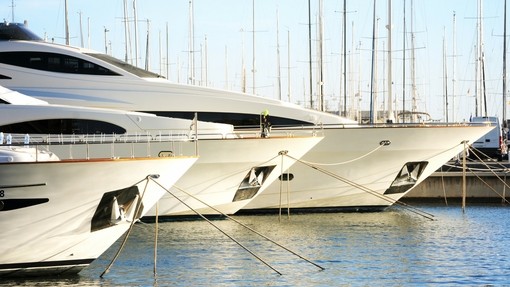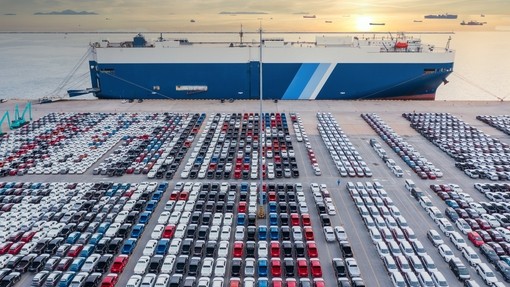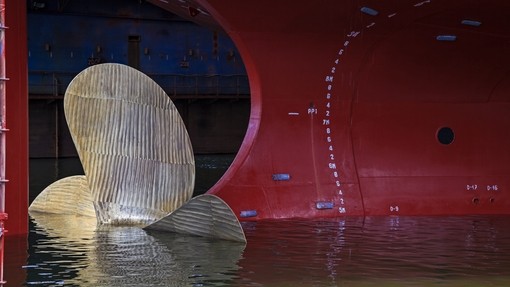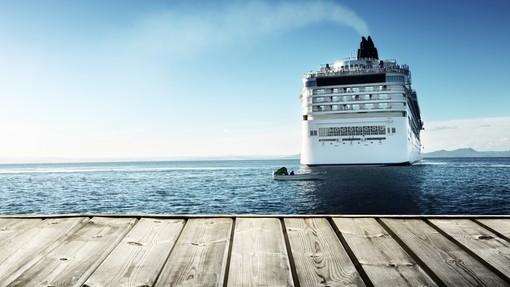Additional damages for shipowners – eternal bliss, or short-lived?

Details
‘From time to time, a case provides the opportunity to resolve a longstanding uncertainty on a point of law of significance in a particular field of commerce. This is such a case.’ – Baker J
In what is being widely touted as a resolution to a debate that has circulated for many years on the nature of a demurrage claim, the High Court, London, has recently handed down judgment that promises to cause as much excitement in shipping and trade law (certainly in legal circles) as The Astra series of judgments did five-to-six years ago.
The facts
K-Line Pte Ltd (the Owners) and Priminds Shipping (HK) Co., Ltd (the Charterers) entered into a voyage charterparty on an amended Norgrain form for the carriage of soybeans on the “ETERNAL BLISS” (the Vessel) from Tubarao, Brazil to Longkou, China.
The Vessel arrived at the Longkou anchorage and tendered notice of readiness at 0442 hours on 29 July 2015. Due to port congestion and a lack of storage space for the cargo, the Vessel was kept at the anchorage for some 31 days.
On 30 August 2015, when discharge was underway, it was observed that the cargo exhibited significant moulding and caking throughout. The Owners later settled cargo receivers and their insurers’ claims at US$1.1 million.
The Owners thereafter commenced arbitration against the Charterers seeking damages or an indemnity in respect of that cost. Pleadings were served in the arbitration, and no breach of contract was alleged by the Owners against the Charterers other than failure to discharge within the laytime. Simply put, the Owners alleged that the cargo deteriorated as a result of its extended retention on board the Vessel, and that it would have been in sound condition if timely discharged.
The questions before the Court
Pursuant to s.45 of the Arbitration Act 1996, the parties agreed to refer a preliminary point of law to the High Court, namely whether the Charterers were liable to compensate or indemnify the Owners by way of:
a) Damages for the Charterers’ breach of contract as a result of their failure to complete discharge within the permitted laytime; or
b) An indemnity in respect of the consequences of complying with the Charterers’ orders to load, carry and discharge the cargo.
The crux of the debate
For almost 100 years, it has been debated whether, in order to recover a loss beyond that of the loss of the use of the vessel (traditionally compensated by way of demurrage), it would be necessary to identify a separate breach of contract.
Before considering the authorities before him, Baker J first made the ‘obvious point’ that parties could contract by way of the language in the relevant demurrage clause so as to directly deal with this issue. However, the Norgrain form does not contain such language, and neither had the parties’ amendments to the form. Instead, the parties had simply agreed that ‘demurrage…if incurred,’ was to be paid at a certain rate. The parties had not agreed what demurrage is, or what it seeks to liquidate, which is how the contentious question before Baker J arose. This is typical of many standard voyage charter forms – for example, the Gencon and Asbatankvoy forms.
Baker J then considered the Court of Appeal case of Aktieselskabet Reidar -v- Arcos [1927] KB 352, in which the charterers failed to load the cargo of timber at the specified load rate. As a result, the charterers exceeded the permissible laytime and demurrage became payable. Further, as a result of the delay, the vessel was only permitted to carry a winter deck load, which was significantly less than the summer deck load it would have carried had it been loaded within the laycan.
The Lord Justices unanimously held that the shipowners were entitled to damages for deadfreight. However, they disagreed whether there had been one breach, being a failure to load within the laytime, or two breaches, being a failure to load within the laytime and a failure to load a full cargo. In this regard, Bankes LJ held there was a single breach, whereas Sargant LJ agreed with the owners that there had been two breaches. A point of contention is where Atkin J’s view on the matter lay, although the majority view in subsequent cases is that he was a ‘two breach’ man.
The Bonde [1991] 1 Lloyd’s Rep 136 was the principal case relied upon by the Charterers. In The Bonde, a cargo of wheat was sold under an FOB contract of sale. The buyers invoked a clause in the contract which provided that the delivery period could be extended by a further 21 days if notice thereof was given. The sellers completed loading within the extended delivery period, but were unable to achieve the guaranteed loading rate. The sellers claimed that the buyers were liable to pay carrying charges for the 21-day extension period.
The buyers denied liability, claiming that the sellers’ breach disentitled them from claiming these charges.
In The Bonde, the Court considered Reidar -v- Arcos and held that, where a charterparty contained a demurrage clause, in order to recover damages in addition for demurrage for breach of the charterers’ obligation to complete loading within the laycan, the shipowners needed to demonstrate that such additional loss was not only of a different nature than the loss of use of the vessel, but stemmed from a breach of an additional and/or independent obligation. In other words, two breaches were needed. By analogy, the same conclusion was to be drawn in respect of the rights and obligations of a buyer and seller under an FOB contract in which provisions relating the payment of demurrage and rates of loading were incorporated.
In reaching this decision, the Court reasoned that if the majority view in Reidar -v- Arcos was that two breaches were required, it followed that Bankes LJ’s ‘one breach’ view was wrong in law.
Baker J’s decision
After considering the cases before him, Baker J concluded that the correct reading of Reidar -v- Arcos was that the majority had found there had been two breaches. However, he also said that this did not mean that the shipowners’ claim for deadfreight would have failed had it been unanimously found that there had been only one breach.
This left Baker J to conclude that The Bonde had been wrongly decided, as it was based on faulty reasoning in relation to Bankes LJ’s ‘one breach’ view. This reasoning was non sequitur, ie it did not logically follow.
Baker J commented that it was a strong thing for a judge of a court of first instance to refuse to follow a prior decision of a court of the same level which has stood without direct criticism for 30 years. However, he concluded the point at hand and previously decided in The Bonde is a specific, narrow point that does not often arise, and on which there has not been a fully considered decision of a later court agreeing therewith. As such, the doctrine of precedent permitted him not to follow the decision in The Bonde. Accordingly, Baker J decided that it was both open to him and right to reject The Bonde, and that he could apply his view as to what demurrage is intended to compensate. In this regard, he said:
‘Agreeing a demurrage rate gives an agreed quantification of the owner’s loss of use of the ship to earn freight by further employment in respect of delay to the ship after the expiry of laytime, nothing more. Where such delay occurs, the demurrage rate provides an agreed measure by which the parties are bound for the owner’s claim in damages for detention, but it does not seek to measure or therefore touch any claim for different kinds of loss, whatever the basis for any such claim.’
In answer to the questions before him, therefore, Baker J found that:
(a) The Charterers were liable to compensate the Owners in respect of the loss, damage and expense that the Owners had suffered as a result of the Charterers’ breach of contract in failing to complete discharge within the permitted laytime; and
(b) as he had reached the conclusion set out in (a), it was not necessary to decide whether the Charterers were liable to indemnify the Owners in respect of the consequences of complying with the Charterers’ orders to load, carry and discharge the cargo.
Comments
Many commentators have been quick to assume that the “ETERNAL BLISS” settles the position with respect to whether shipowners may recover losses other than demurrage from charterers which are caused by delays at the load or discharge port. However, we are of the view that this matter is far from settled, and claims seeking to rely on this judgment shall have to be carefully considered on a case-by-case basis.
Despite this judgment, there are still hurdles for shipowners to overcome in order to successfully claim from charterers. For example, in the present case, which shall now be referred back to the arbitral tribunal, the Owners shall have to prove that they complied with their obligation to safely carry, care for and stow the cargo; that the damage in question was not caused by issues other than the delay at the load or discharge port; and not caused by an event which broke the chain of causation. Thereafter, the Owners shall have to evidence that the US$1.1 million settlement reached with cargo owners and receivers was reasonable. If the Owners are unable to surmount the hurdles described above, they may only be entitled to recover a small percentage of the sum claimed, if at all. In other words, although this judgment could mean an increase in shipowners seeking to make recoveries from charterers, it is by no means certain that their claims shall prevail.
This judgment shall also have ramifications for claims pursuant to contracts of sale for losses other than demurrage which are caused by delay. Although the “ETERNAL BLISS” concerns a voyage charter, Baker J rejected that there was a material distinction between the demurrage provisions in a charterparty and the demurrage provisions in a contract of sale.
The key question at hand is: what is demurrage, and what does it liquidate? Unless otherwise defined in the contract, this judgment is authority that demurrage does not measure or affect claims for loss other than damages for detention, regardless of the basis for those claims.
In order to protect their position, therefore, and ensure that claims which are able to overcome the hurdles identified above may be passed on, we would recommend that parties ensure that the demurrage provisions in their charterparties and contracts of sale are on materially back-to-back terms.
Charterers have been granted leave to appeal to the Court of Appeal, and the appeal is presently outstanding.






